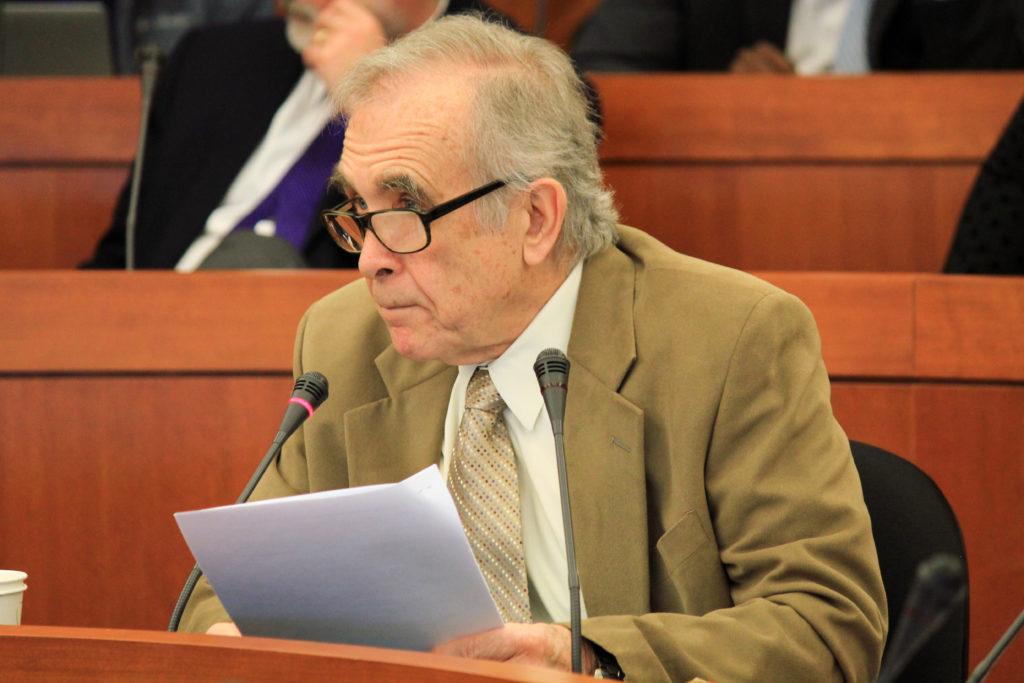At the conclusion of an institutional culture assessment earlier this month, officials pinpointed issues like inefficient communication and inconsistent leadership as employees’ top concerns – but faculty said the conclusions were unsurprising.
Nearly 3,000 faculty and staff responded to the survey, according to an email University President Thomas LeBlanc sent to faculty and staff on Jan. 11. The email, which was obtained by The Hatchet, detailed the findings of the evaluation and used faculty and staff responses to calculate the University’s biggest pain points.
More than 10 faculty members said in interviews that the survey should encourage the University to revisit its “top-down” approach to better lead and connect with its thousands of faculty and staff.
“I think it confirms what a lot of people suspect – that it’s a broken institutional culture,” David Rain, a professor of geography and international affairs, said. “I really think that what [LeBlanc] needs to do is to bring more vision to the institution as a whole, and that’s spread across all these schools and colleges with their own different institutional cultures.”
The survey – the first of its kind – cost the University $300,000 and was sent to all faculty and staff members last semester. The Disney Institute, which issued the assessment, conducted interviews and focus groups over the past several months to collect anecdotal data backing up the survey’s findings.
Andrew Zimmerman, a professor of history and international affairs, said he had “mixed reactions” to the survey results but was glad that the survey recognized that many individuals at the University feel the leadership is out of touch with faculty and staff.
“Morale is hurt by staff layoffs and by the disrespect the University shows to all faculty by its abysmal pay of our part-time colleagues,” he said in an email. “The $300,000 this survey costs could have been spent addressing those issues or on any number of other issues.”
The Faculty Association also raised concerns in the fall that the amount of money spent on the survey could have been used to benefit other areas of GW, like faculty and staff salaries.
Katrin Schultheiss, the chair of the history department, said that because faculty and staff have limited channels of communication with administrators, professors often encounter issues with transparency and accountability.
The survey asked employees to agree or disagree with a set of questions on a scale of one to five – where one means strongly disagree and five means strongly agree. Faculty and staff averaged a 2.72 when asked how well University leaders, managers and faculty are held accountable for their behaviors, according to the results email.
“Often, when we hear explanations from higher administrators, we’re not always sure if we’re getting the whole story, if there’s not more of the story we haven’t already been told,” she said. “There’s a kind of lack of trust, I think, and again, it’s not necessarily the product of any one individual practice, but that’s one cultural sense.”
Charles Garris, a professor of mechanical and aerospace engineering, said the University’s poor service culture makes it difficult for students to make simple administrative requests, like getting a copy of their diploma or fixing student billing errors.
Survey participants rated the University’s ability to address stakeholder issues an average 2.92, according to the results email.
“With the kind of tuition that we charge our students, I think our students are entitled to excellent service,” Garris said.
Guillermo Orti, a professor of biology, said the University’s “top-down” leadership prevents officials from recognizing faculty and staff or promoting their “bottom-up” ideas and initiatives.
He added that administrators did not seek input from science and technology professors while designing the Science and Engineering Hall and instead told them what they wanted to put in the building.
“They won’t listen to us and what we need, but they were telling us what we need and what we are going to get because this is what they think we need, and it was a total disaster,” he said. “I think the process was a clear example of the absence of transparency.”
Survey respondents rated how well the University provides meaningful recognition to faculty and staff an average of 2.71, according to the results email.
“This is one big issue that I think is inhibiting employees, faculty, staff from performing better and being more involved and creative in their endeavors,” he said. “And it’s sort of a waste of human talent that we have.”
Parth Kotak, Tiya Daniel and Hayden Smith contributed reporting.





